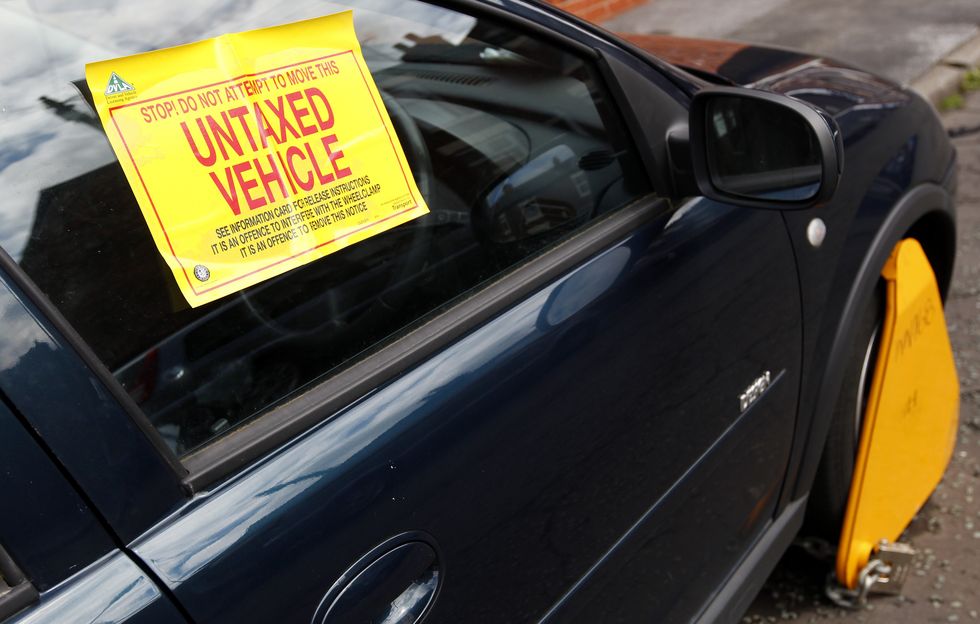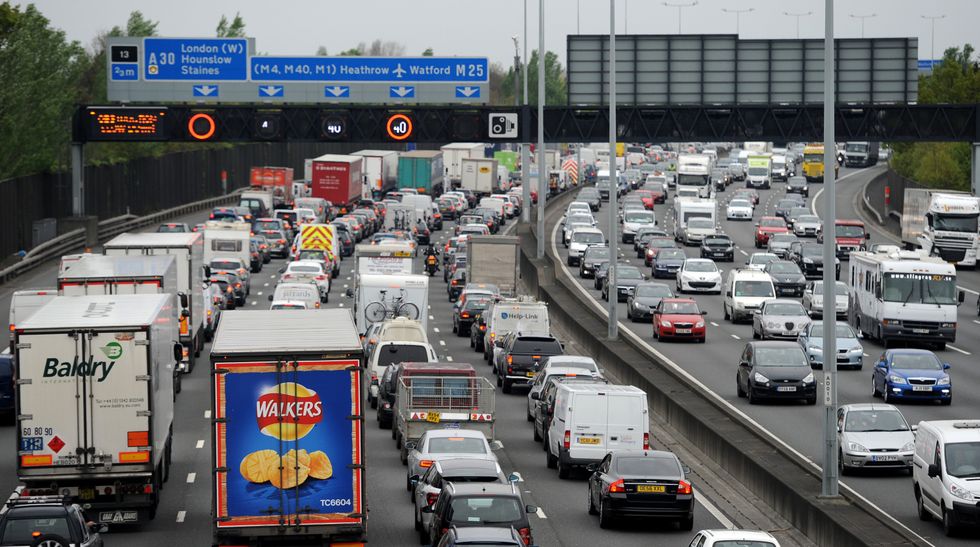Car tax changes launching within weeks could see drivers hit with further price hikes - VED band estimates
The VED rates are set to change on April 1
Don't Miss
Most Read
Trending on GB News
With new Vehicle Excise Duty (VED) increases coming into effect on April 1, drivers are being warned of allocate additional funds as tax rises could have a huge “financial burden” on families as tax increases by nearly £200.
The increase in VED was announced in the Autumn Statement and affects owners of cars, vans, motorcycles, and holders of motorcycle trade licences.
The Government detailed how the hiked VED rates will fall in line with inflation and will ensure that it's maintained in real terms and that motorists make a fair contribution to public finances.
Cars registered after April 1, 2017, face a £10 increase in VED, according to one tax expert. As for newer vehicles emitting over 255g of CO2, they will see first-year taxes rise by £140 to a total of £2,745.
Do you have a story you'd like to share? Get in touch by emailingmotoring@gbnews.uk

Cars which pollute more pay higher VED taxes
PA
Andy Wood from Tax Natives, explained: "The impending rise in VED rates will substantially impact drivers of petrol, diesel, and hybrid vehicles across the UK.
“Starting April 1, these drivers may face notably higher annual expenses in line with the retail price index inflation.
“This means that individuals relying on traditional fuel types may need to allocate additional funds to their vehicle taxes, potentially amounting to hundreds of pounds.”
Those choosing car models with higher pollution levels incur higher tax obligations, especially diesel models.
By aligning with Governmental efforts to promote sustainability in the automotive sector and purchasing an electric vehicle, drivers could save money in the long term.
Vehicles registered after March 1, 2001, are categorised by pollution levels. Top band M vehicles will incur a £40 hike, from £695 to £735 annually, Wood estimates.
As for Band L, Wood predicts it will see a £35 increase, while K and J rise by £20 each.
For cars registered before 1 March 2001, tax rules differ significantly. Instead of CO2 emissions, taxation is based solely on engine size, Wood explained.
Vehicles with engines under 1.5 litres are subjected to an annual tax of £200, while larger engines are taxed at £325.
Wood added: “Verifying engine specifications when considering older vehicles is essential, as rates may vary.
“These rates are subject to potential increases, likely from April 2024."
Under the current tax structure, vehicle owners are subject to a flat annual tax rate of £180, with additional car charges surpassing the £40,000 threshold.
LATEST DEVELOPMENTS:
- Drivers face huge fines from ANPR road camera rollout as council gains new powers to charge motorists
- M25 closure: Drivers urged to ignore sat navs ahead of weekend traffic chaos with 'unprecedented' changes
- Electric vehicle ranges could be wildly inaccurate as some cars could see a 100-mile drop in battery

Cars registered after April 1, 2017, face a £10 increase in VED
PA
This structured approach to taxation aims to foster sustainability and fairness within the automotive industry by ensuring that all vehicle owners contribute proportionately to the environmental impact of their vehicles, Wood stated.
The VED rates are set to change on April 1 with the Government yet to announce specific figures.









